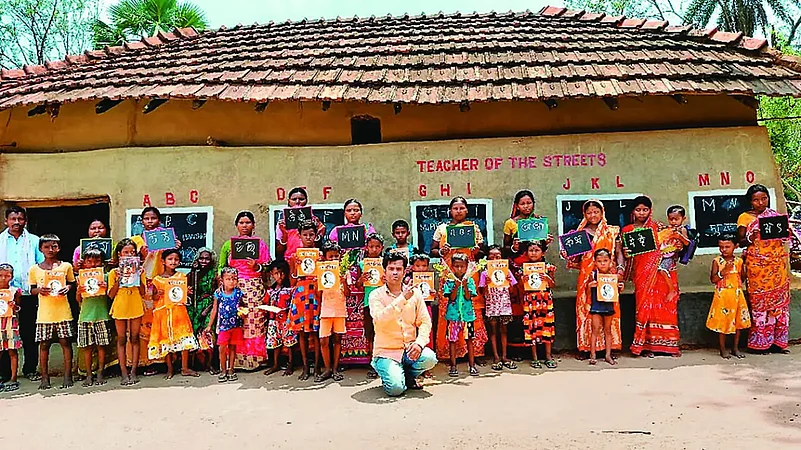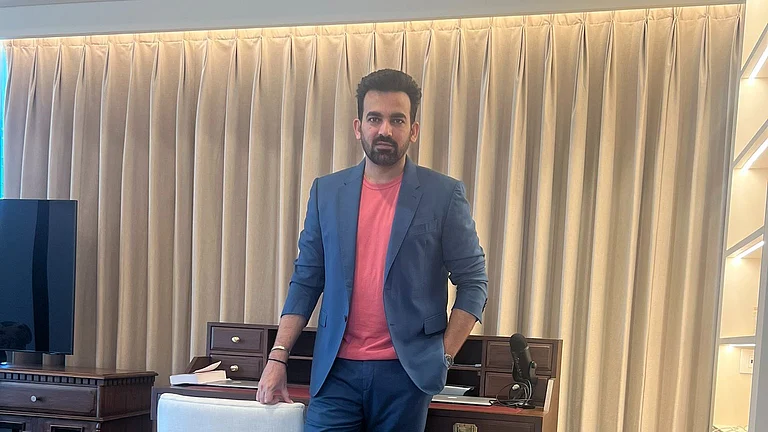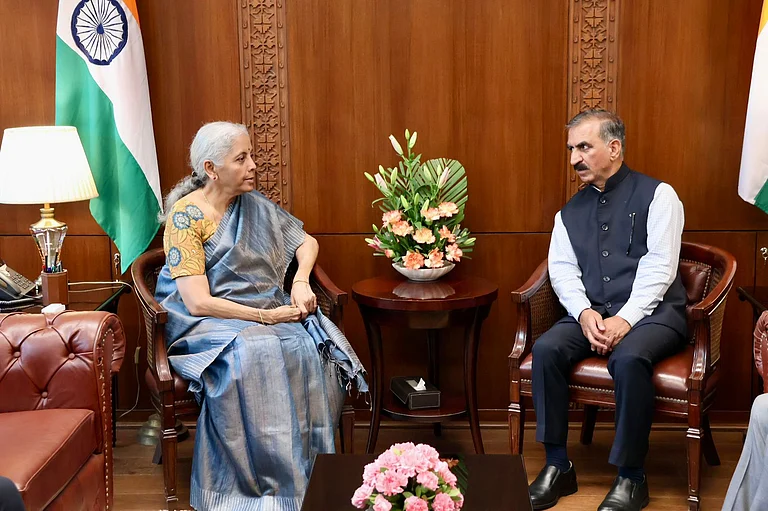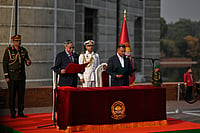For about four years now, several nonedescript alleys in the equally unremarkable tribal villages in Jamuria area of southwestern West Bengal, that reveal tell-tale signs of poverty—have held an unexpected surprise for rare visitors, government officers, employees or NGO workers. For these localities had turned into open-air schools, with rows of mud walls of thatched houses painted black serving as writing boards.
Deep Narayan Nayak, a teacher at the Tilka Majhi Adibasi Free Primary School in an underdeveloped part of Jamuria municipal area in Pashchim Barddhaman, has been running free tuition centres in these villages since 2018, spending 5-6 hours every day outside his school duty hours. Locally known as Rastar Master, or the teacher on the street, Nayak travels from one locality to another on his motorbike, before and after school, coaching first-generation learners.
Hardly anyone, barring some officials of the district’s education department and administration, had any inkling of such a model of development, one that could possibly popularise mass education in tribal villages where basic facilities like household electricity, access to clean fuel or adequate supply of potable water, remain faraway dreams.
The Covid-19 lockdowns in 2020 brought these projects to the limelight. When all schools were shut and private tuition was not accessible for the children on the wrong side of the digital divide, Nayak’s classes continued uninterrupted. After a media report highlighted Nayak’s efforts, these quaint villages started getting visitors frequently—journalists, social workers and even curious individuals.
“Lockdown put the spotlight on my project. The existing system of painting blackboards at a distance of a few feet on the walls of huts on both sides of the alleys made maintaining physical distancing easy. The administration never asked me to stop those centres. They only asked me to be careful,” the 36-year-old tells Outlook.
Amid the media interest, one photo of a batch of students studying on the streets at night under oil lamps went viral on social media. It was from Namu Jamboda village, where electricity was yet to reach. Soon, other media followed and the administration quickly ensured electricity supply to the village.
One of the most important aspects of his centres is adult education, Nayak says. Mothers are asked to join their children, and students are asked to teach the alphabet to their mothers. “Watching a mother learning the alphabet or how to write from her daughter or son is fascinating,” he says.
Amid growing popularity, demands for such centres also rose. During the pandemic, Nayak was giving tuition at three places in Jamuria and Asansol. Two years hence, he now has 13 centres, with each centre getting its turn every two-three days. Students from all primary classes are taught together. The model has expanded to other districts, with enthusiasts in Kashipur in Purulia recently setting up a similar system under his guidance, and one each in Bankura and Birbhum are in the pipeline.
Nayak married in 2020. All students of his coaching centres and their parents were invited to the event. He now has a 10-month-old daughter. But even these family responsibilities have not reduced his involvement with street-side coaching. “I still spend about 10 hours outside home, teaching in the school and two to four batches of coaching classes.”
(This appeared in the print edition as "Tutor on the Streets")
Liked the story? Do you or your friends have a similar story to share about 'ordinary' Indians making a difference to the community? Write to us. If your story is as compelling, we'll feature it online. Click here to submit.


























